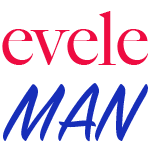When I embarked on my journey to prepare for an Amazon interview, I found myself grappling with a mix of excitement and anxiety—not only because of the challenging questions ahead but also due to the complex set of values and principles that define the company’s culture. Amazon’s Leadership Principles serve as the backbone of their corporate environment and play a critical role in the interview process. As I reflected on my personal values, it became clear that a deep understanding of these principles would allow me to showcase not just my qualifications but also how closely I align with the company’s mission.
For instance, principles such as “Customer Obsession” and “Invent and Simplify” are far from mere corporate jargon; they truly embody the essence of Amazon. I recall my experience working on a community-driven project where we actively sought and incorporated local feedback to improve our services. This approach exemplified customer obsession—we were not just hearing our customers but genuinely listening to their needs and preferences. That project taught me the profound impact of empathy in our interactions; it reinforced the idea that effective communication goes beyond words—it’s equally about understanding and responding to what’s being shared. Don’t miss out on this external resource we’ve prepared for you. In it, you’ll find additional and interesting information about the topic, further expanding your knowledge, amazon interview questions!
Telling Your Story Effectively
Everyone possesses a unique story, and the Amazon interview process invites candidates to share theirs authentically. One technique that proved to be transformative for me was the STAR method—Situation, Task, Action, Result. This structured approach encourages you to articulate your experiences in a way that engages the listener, allowing interviewers to visualize your contributions as they unfold.
As I prepared, I took some time to think back on defining moments in my career. I crafted a narrative about a particularly challenging team project where we faced tight deadlines and conflicting opinions. In this scenario, I emphasized how I facilitated open communication to unify the team, ultimately leading to a successful launch. The power of storytelling lies in its ability to illuminate not just your skills but also your personality and problem-solving approach in a way that feels authentic.
Practicing Active Listening
Now, let’s shine a light on a crucial yet often underestimated skill: active listening. Throughout my preparation, it dawned on me that interviews aren’t just about showcasing your abilities; they’re a reciprocal dialogue. It’s vital to absorb what google did to me the interviewer is conveying while also articulating your own thoughts. Active listening means engaging with the conversation, posing clarifying questions, and responding in a thoughtful manner.
During mock interviews, I began to shift my focus from simply answering questions to truly engaging with them. I found that saying things like, “That’s an insightful question; could you elaborate on what you’re specifically hoping to learn?” created a more meaningful exchange. This kind of interaction not only helps build rapport but also demonstrates that you value the interviewer’s insights, leaving a lasting impression. Picture an interviewer who senses your genuine interest in their perspective—it can significantly enhance the dynamic of the conversation.
Body Language Speaks Volumes
While the words we choose wield significant influence, our body language often delivers an even stronger message. During my interview preparation, I became increasingly aware of how posture, eye contact, and even facial expressions can shape communication. I fondly remember my grandmother emphasizing the importance of a firm handshake and steady eye contact. It’s interesting how those simple lessons have shaped my interactions, helping me establish connections both personally and professionally.
Going into my Amazon interview, I made a point to stand tall, maintain eye contact, and exude the enthusiasm that reflects my passion for the role. Even in virtual interviews, which have become the norm, projecting confidence through body language is key to conveying the enthusiasm you feel about the opportunity.
Mastering the Follow-Up
Finally, we arrive at the significance of follow-up communication. A thoughtfully crafted thank-you email after your interview can set you apart from other candidates. From my experience, an effective follow-up goes beyond a brief “thank you.” It serves as an opportunity to reiterate your enthusiasm for the role while reflecting on the conversation you just had. I like to take a moment to highlight specific points from our discussion—perhaps something about their recent projects or a shared interest—to underline how my skills align with the needs of the team.
On one occasion, I followed up after an interview by recalling a project the interviewer had mentioned. Not only did this gesture express my gratitude, but it also reaffirmed my interest in being part of such initiatives. Though it may seem like a small touch, it can significantly impact how you are remembered in a pool of candidates.
Taking Action
As I reflect on the interview preparation journey, I see it as more than just a pathway to securing a job; it’s been about deepening my understanding of my own professional identity and values, articulating them with clarity, and connecting genuinely with others. Every conversation is a chance to learn and grow, while also communicating not just your aspirations but the vision you hold for the teams and organizations you wish to join. If you’re ready to embark on your own journey, start practicing today—you’ll be amazed at how these skills can enhance not only your interviews but also your everyday interactions! Learn even more about amazon interview questions in this external resource.





